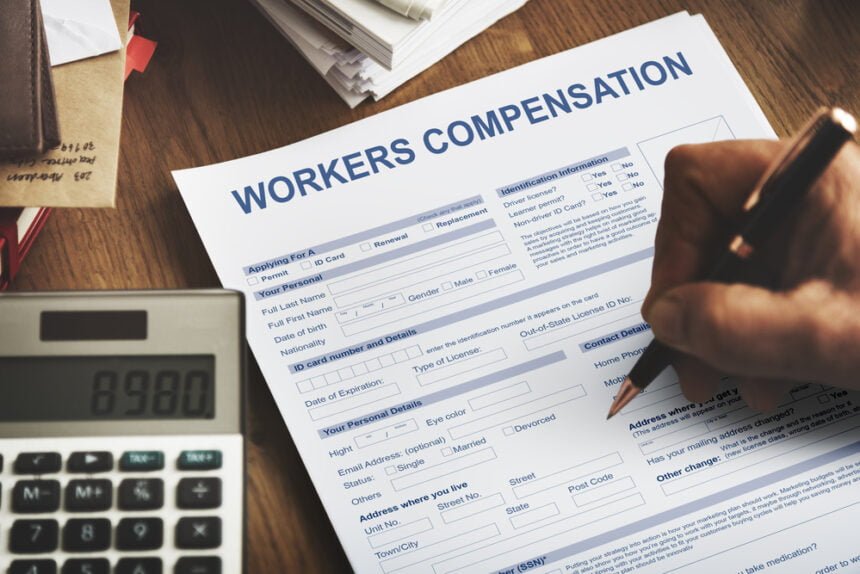Have you recently been injured at work? Unfortunately, this is a more common problem than most people would like to think. An estimated 4.26 million people suffer workplace injuries each year that are significant enough to require medical attention.
Fortunately, you have options after suffering from an accident. Workers who sustain injuries on the job are eligible for worker’s compensation, which helps them meet their financial obligations and speeds up their road to recovery.
The challenges in filing for a worker’s compensation claim may vary depending on many factors. These factors include the nature and severity of the injury or illness, the kind of work the employee did before or during the incident, and the specific laws and regulations governing the process.
The place and time of the accident or incident may also be an important factors to take into consideration. Understanding the common terms associated with workers’ compensation claims is also helpful in navigating the sometimes too technical claims process.
Common Terms In Worker’s Compensation Claims
Here are five of the most common terms that anyone applying for a worker’s compensation claim should understand.
1. Maximum Medical Improvement
Maximum Medical Improvement (MMI) is a significant concept in the workers’ compensation system. The term refers to the status that’ll establish the degree and balance between the disability and the amount of sickness or disability benefit the employee is entitled to.
MMI is the term used in the system of workers’ compensation to indicate the point at which an injured worker’s medical condition has reached a stable and permanent state. At this stage, no matter the medical treatment, the employee’s medical condition is no longer expected to improve.
As soon as the employee’s condition reaches MMI, the attending doctor will assess and establish the level of permanent disability that resulted from their injury.
2. The “No Fault” System
The Federal Employees Compensation Act, or FECA, provides coverage to federal salaried workers who suffered injuries or diseases related to their work. The law provides financial and medical benefits, including assistance, so the employee may immediately return to work.
Affected employees will also be indemnified for lost wages and permanent impairments due to work-related suffering. It’s a benefit that employees enjoy aside from the morale-boosting medical assistance employers provide for their workers.
All these federal assistance and compensation options will be awarded to the employee regardless of who is at fault, under the “no fault” law. It’s a system under the Workers Compensation Act that declares that injured employees do not have to prove that the employer or any other party was at fault for their injuries.
3. Employee Disability
Disability, for purposes of computation for worker’s compensation benefits, does not really mean like the common understanding of physical disability. The worker cannot actually return to work for some time. The number of days the employee fails to report for work is the basis of the employee’s disability benefit.
There’s a partial or temporary, and total or permanent disability. Temporary disability (TD) happens when employees fail to report for work because they’re still recovering from work-related injuries or illnesses. Permanent disability, on the other hand, refers to the incapacity of employees to work because their job-related condition or injury prevents them from returning to work.
4. Average Daily Wage
The Average Daily Wage (ADW) is the worker’s compensation computed daily for worker’s compensation claim purposes. It’s usually calculated by the total gross remuneration multiplied by the weeks worked before the accident, divided by the number of days per week the worker reported for work.
The average daily wage computation may affect various factors, like the type of work, the number of hours worked, and the days worked in a typical work week. In addition, the sum of employee compensation that an injured worker is eligible to receive may be subject to minimum or maximum limits in certain jurisdictions.
5. Lost Wages
When discussing workers’ compensation, the term “lost wages” refers to the money an employee failed to earn because of an injury or illness sustained while working there. The resulting damage affects their work. It may affect their performance, or they become unfit and unable to perform their duties and responsibilities for an extended period, either temporarily or permanently.
Lost wages can have a severe negative effect on the individual’s capacity to maintain financial stability. These situations may make suffering employees eligible for wage replacement payments under the workers’ compensation program.
These benefits are intended to help employees make up for lost income. Both the types of benefits that are made accessible to employees and the total quantity of reparation benefits that can be received by these employees differ from one jurisdiction to another and from employee to employee.
The amount of benefits is typically computed based on the employee’s earnings before the occurrence of the injury. The computation is used to obtain a reasonable and fair amount of financial assistance for the employee. The objective is to help employees effectively manage their expenses and preserve their financial stability.
Bottom Line
You can find many popular and sometimes confusing terminologies when dealing with workers’ compensation. Listed on this page are just a few of the most common ones. You may familiarize yourself with these terminologies and their definitions to make it easier for you, especially as you go through the claims process more effectively.
You can also search more of them in the links provided for more detailed information about their usefulness as you navigate the workers’ compensation claims processes.










